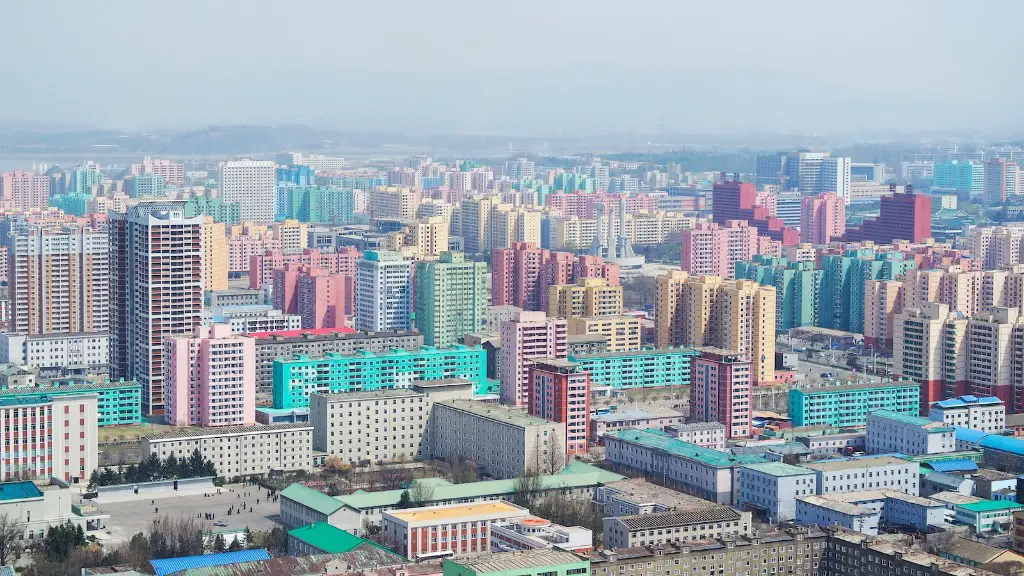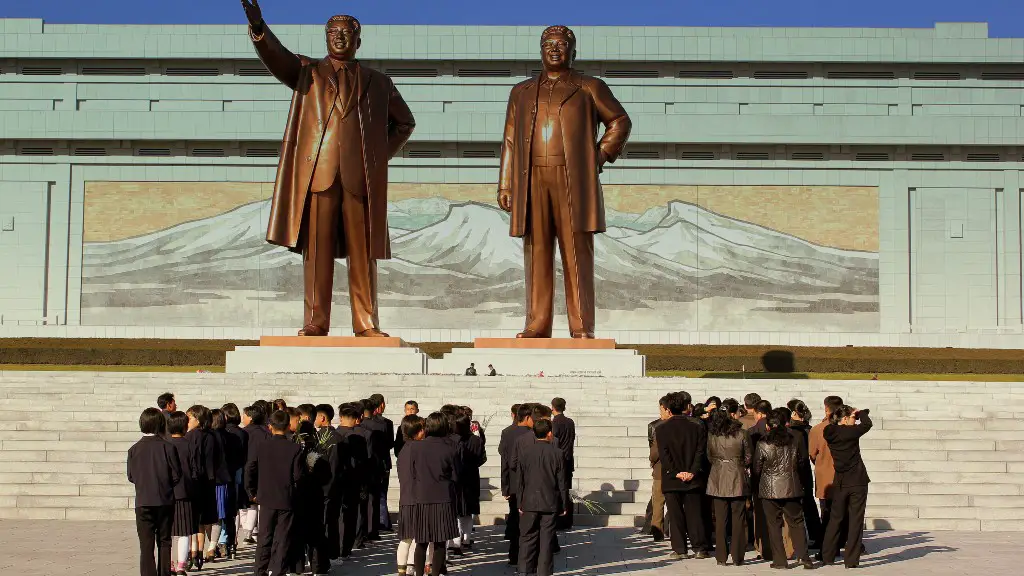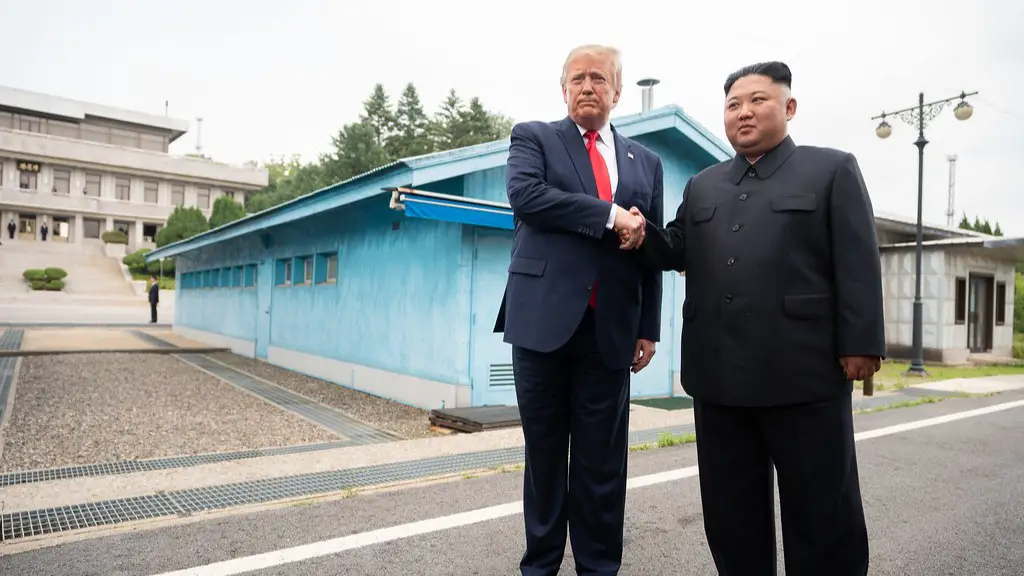What Is North Korea Doing With Missiles
For years, the international community has expressed concern over North Korea’s ballistic missile program. North Korea is believed to have one of the largest stockpiles of missiles in the world, with some estimates placing the total number at more than 700. As tensions between the United States and North Korea have risen in recent years, so too have concerns about what North Korea is doing with its missiles.
North Korea began developing its missile program in the early 1980s, with the goal of producing long-range ballistic missiles capable of delivering nuclear weapons. North Korea is believed to have developed a nuclear payload delivery capability in 2017, when the country tested its first intercontinental ballistic missile (ICBM). North Korea has since conducted several more tests, but it is unclear how many of these missiles have been deployed and what their range and capability are.
North Korea has used its missile tests to demonstrate its military capabilities and its willingness to use force if necessary. According to experts, North Korea is using its missiles to send a message of deterrence to its adversaries, as well as to bolster its own security. Additionally, the tests may also be a way to increase the Kim regime’s influence in the international community.
The United States has responded to North Korea’s missile tests by implementing additional economic sanctions and launching its own military exercises in the region. The U.S. has also sought to engage in diplomatic talks with North Korea, although these have not yet been successful in reducing tensions.
The international community has expressed concern over the potential for a nuclear conflict between the United States and North Korea. While the two countries have not yet engaged in open conflict, many experts believe that North Korea’s nuclear capabilities make the risk of a conflict more likely.
Missiles and Deterrence
North Korea’s missile program has been seen as a signal of its willingness to use force if provoked. The Kim regime has made it clear that it is prepared to use its nuclear weapons as a way of deterring hostile actions against the country. According to some experts, North Korea’s missile program is not only a way for the country to ensure its own security, but also to gain a political advantage in the region. By demonstrating its military capabilities, North Korea is able to bolster its international standing, as well as its sway over its neighbors.
At the same time, North Korea’s missile program has also been viewed as a provocative act by many of its neighbors. South Korea and Japan, in particular, have expressed concern over North Korea’s missile tests and have increased their own military capabilities in response. The North Korean missile program has also been seen as a threat to U.S. security, as the United States is within range of some of North Korea’s more advanced missiles.
Some experts have argued that there is a need for a negotiated solution to the tension between the two countries. While the United States has sought to engage in talks with North Korea, these conversations have thus far failed to produce any tangible results. Some commentators have suggested that an arms control agreement, in which both countries agree to limits on their respective missile programs, could be a way to reduce the risk of conflict.
International Response to North Korea’s Missile Program
The international community has responded to North Korea’s missile program with a mix of condemnation and caution. While the United Nations has imposed numerous economic sanctions in an effort to pressure North Korea to end its missile program, many countries have sought to engage with the Kim regime in an effort to reduce the risk of conflict.
China has long been viewed as one of the only countries that can influence North Korea and has sought to engage in dialogue with the Kim regime. China has called for a diplomatic solution to the crisis and has sought to encourage both sides to reach a peaceful resolution. China has also implemented its own economic sanctions on North Korea, although it has done so with a degree of caution in order to maintain good relations with the Kim regime.
South Korea has taken a more cautious approach to the crisis. The South Korean government has sought to reduce military tensions on the Korean Peninsula and has engaged in talks with the North Korean leadership. Additionally, South Korea has offered incentives to North Korea if it will curb its missile program.
The response of the United States has been to continue its sanctions against North Korea and to maintain its military presence in the region. Despite the harsh rhetoric of President Trump, the United States has also taken a more diplomatic approach in recent years and has sought to engage in talks with the North Korean leadership.
The Impact of North Korea’s Missile Program
The consequences of North Korea’s missile program have been far-reaching for both the region and the rest of the world. While North Korea does not appear to have used its missiles as a weapon, the country has been able to demonstrate its military capabilities and its willingness to resort to force if necessary.
At the same time, North Korea’s missile tests have had a negative impact on the security of the region. The increased tensions between the United States and North Korea have created a climate of fear, with many experts warning that a conflict could break out at any moment. Additionally, the economic sanctions imposed on North Korea have caused significant economic hardship in the country.
The international community has been largely unsuccessful in its attempts to stop North Korea’s missile program. The Kim regime has shown no signs of abandoning its nuclear ambitions and has continued to test missiles, despite international condemnation.
It remains to be seen whether North Korea will eventually be persuaded to give up its weapons. In the meantime, the international community must continue to seek a diplomatic solution to the crisis, while at the same time preparing for the possibility of a military conflict.
Global Security and North Korea’s Missiles
North Korea’s missile program has become a major source of concern for the international community. The United States, in particular, has become increasingly concerned about the threat posed by North Korea’s nuclear capabilities. The U.S. has increased its military presence in the region and has sought to engage in talks with North Korea, but these efforts have yet to produce a diplomatic solution.
At the same time, North Korea’s missile tests have also highlighted the need for a global response to the crisis. The United Nations has sought to pressure North Korea to abandon its nuclear program, but this effort has been largely unsuccessful. As a result, many experts have argued for a more coordinated international response to the issue.
Such a response would involve increased economic and political pressure on North Korea, as well as efforts to engage the Kim regime in dialogue. Additionally, experts have called for increased collaboration between the U.S. and its allies to deter North Korea from using its missiles against its enemies.
The international community must continue to strive for a diplomatic solution to the crisis, while at the same time maintaining a strong stance against North Korea’s dangerous behavior. A unified global response is essential to ensure that the risk of military conflict is minimized and that global security is maintained.
Stopping North Korea’s Missile Program
Tensions between the United States and North Korea have been escalating in recent years, and the risk of a military conflict has become increasingly likely. In order to reduce the risk of a conflict, the international community must continue to work towards a diplomatic solution to the crisis.
The United States has sought to engage in talks with North Korea, but these negotiations have thus far been unsuccessful. The U.S. must continue to pursue diplomatic solutions to the crisis, while also maintaining its military presence in the region and its sanctions against North Korea.
At the same time, international organizations such as the United Nations must also play a role in preventing a conflict. The UN must continue to exert pressure on North Korea to abandon its nuclear program, as well as to engage in talks with the United States. Additionally, the UN must continue to provide humanitarian aid to the people of North Korea.
While the international community has thus far been unable to prevent North Korea’s missile program, there is still hope that a diplomatic solution can be reached. The U.S. and its allies must continue to work towards a negotiated settlement, while at the same time preparing for the possibility of a military conflict.





